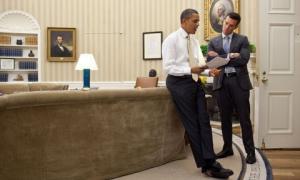Leading, long-term
October 28, 2015
How speechwriters might help CEOs make better decisions, by helping them see their place in history.
CEOs would be better leaders if they knew their legacy might be chronicled, the way Steve Jobs’ has. So suggested Harvard Business School Dean Nitin Nohria in last Sunday’s New York Times.
Most observers attribute a chief executive’s short-term orientation to the pressures of capital markets or the lure of market-based incentive compensation, and I agree these are powerful forces.
But there are also quieter, inner-directed, psychological forces that play a role in C.E.O.s’ managerial myopia. I believe the outside world’s limited interest in making long-term evaluations of business leaders’ legacies is one factor that leads them to prioritize the here and now over the long term.
Nohria points out that while presidents and other politicians can take comfort in continuing reevaluation by historians to separate the tarnish of the moment from their long-term legacies, “business leaders can take no such comfort, because in their world this re-examination rarely happens. Once they leave office, even the best-known business leaders are quickly forgotten.”
If leaders knew they’d be remembered for their long-term contribution, Nohria writes, “they might make very different decisions.”
To whatever extent that Nohria is right, it seems to me that speechwriters ought to use their unique position in the organization to get CEOs thinking and even talking about their place in the history of the company, the industry, business and culture.


